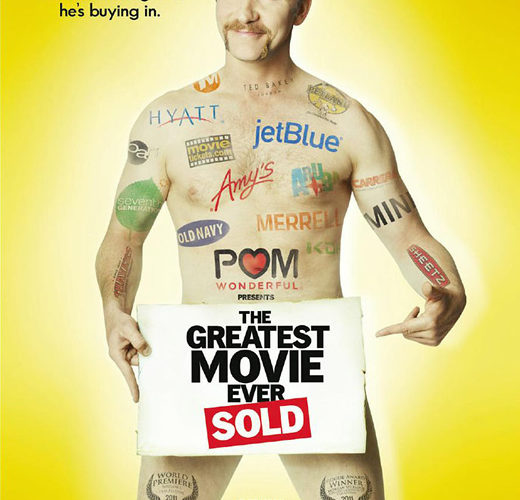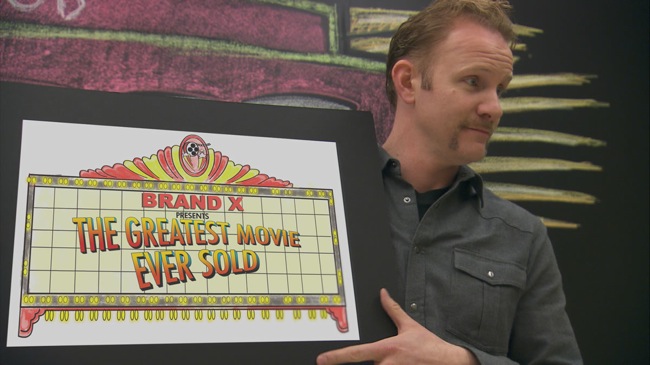With his new release, Morgan Spurlock (Super Size Me, Where in the World is Osama Bin Laden) fans can rest assured that POM Wonderful Presents: The Greatest Movie Ever Sold (from now on referred to as TGMES) remains true to his style, packing an informative, entertaining punch. Without revealing too much of the context, there is a moment within the film that Morgan has his personality analyzed, and it is presented back to him as being a balanced combination of playful and thoughtful. It is these same two descriptors that I could apply to any one of his films, and perhaps because he is able to remain so true to his own nature and curiosity, he is continuously successful.
In TGMES, we dive into the world of product placement and advertising, focusing primarily on its presence in movies. The idea behind the approach is that blockbuster are in part made possible by support from product companies, both in financial support and visual placement. For instance, let’s say the film Iron Man teams with Coca-cola; not only could coke give money to the film to have Tony Stark drink their product on screen, but you may also see Iron Man collectable glasses when you go to McDonalds, cross promotional advertising. Spurlock then raises the question, if a blockbuster has the ability to do this, could a documentary do the same? A doc-buster, if you will.
From this point on, the film delves into the process of finding advertisers/sponsors for the film, and fulfilling the contractual obligations that follow once these relationships are established. This process is both eye-opening and humorous, and normally I’d reveal a few of my favorite moments here, but so much of the experience of this film is its ability to surprise, so I’ll leave it “wait till you see it.”
In addition to documenting his own experiences, Spurlock also interviews a number of social voices, including Noam Chomsky, Bob Garfield, and Ralph Nader. This commentary helps provide understanding to what is going on, helping the film dig deeper below the surface. Spurlock also interviews a number of voices in the film industry, including Quentin Tarantino, Peter Berg, and J.J. Abrams. These segments bring in a number of personal experiences, further shedding light on how these marketing relationships exist.
Ultimately, it is an extremely satisfying cinematic experience. You will laugh (often), but it also enlightens and informs, fueling many conversations to be had once the viewing is over. As Spurlock says, he’s not selling out, he’s buying in, and this writer is definitely buying into him. If you’re heading to the movies this week, this is one that is not to be missed.



